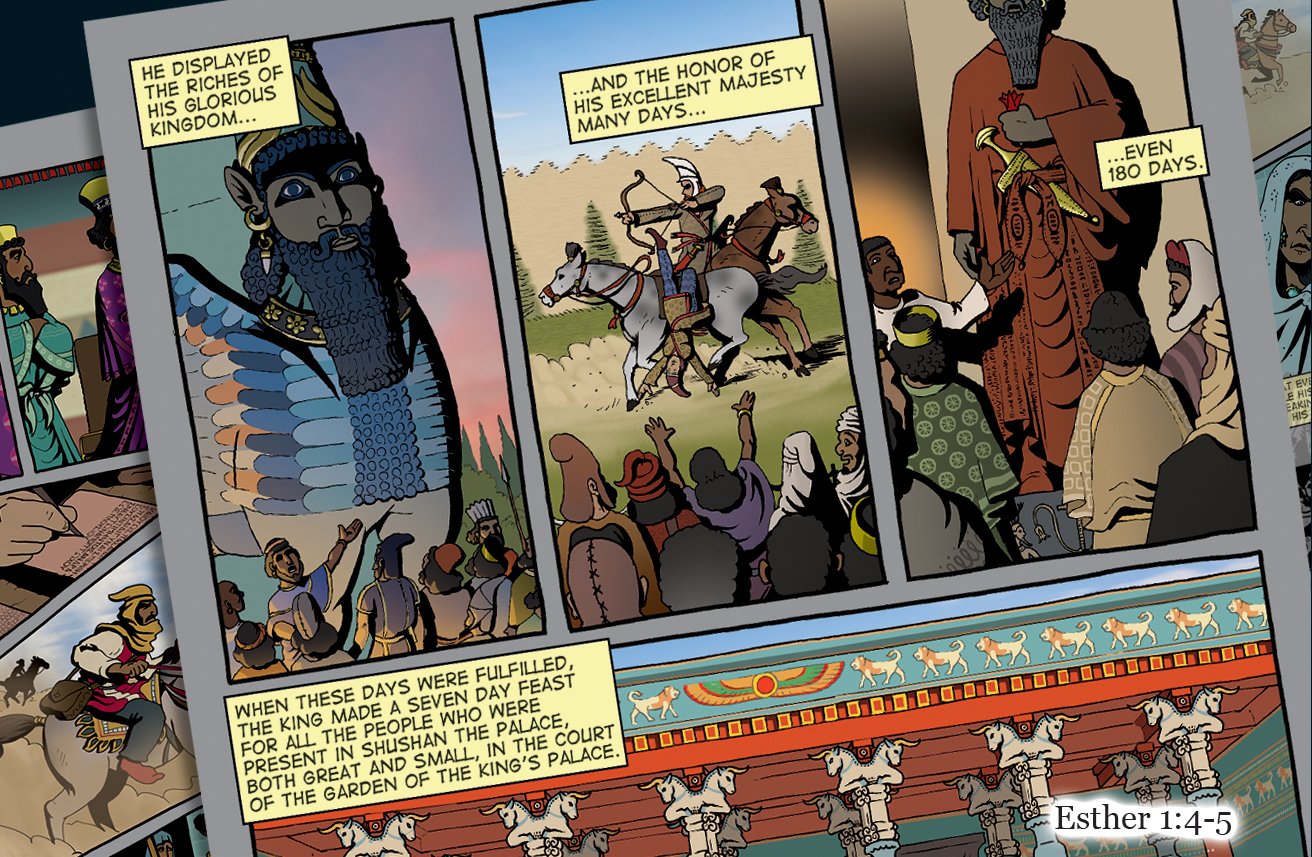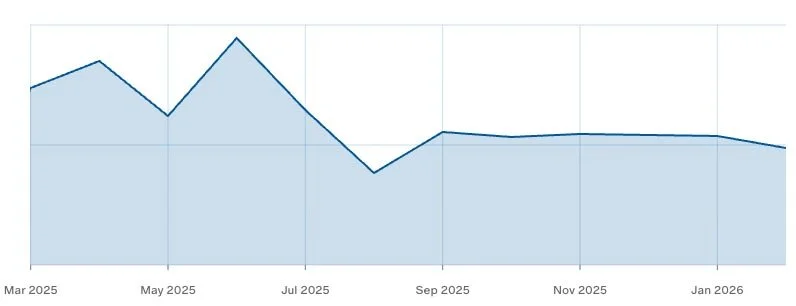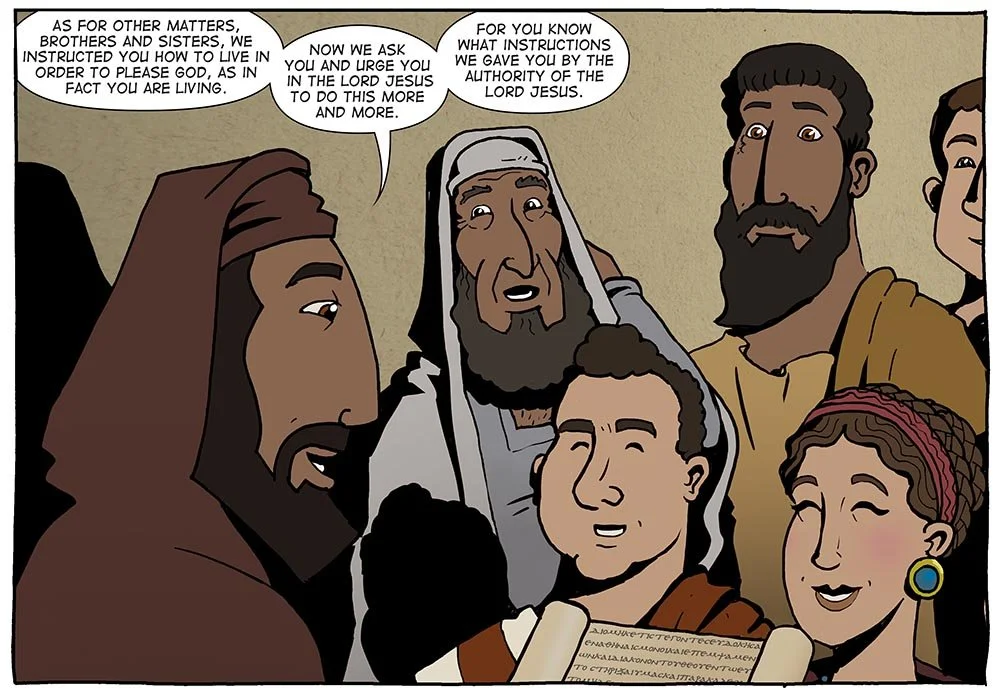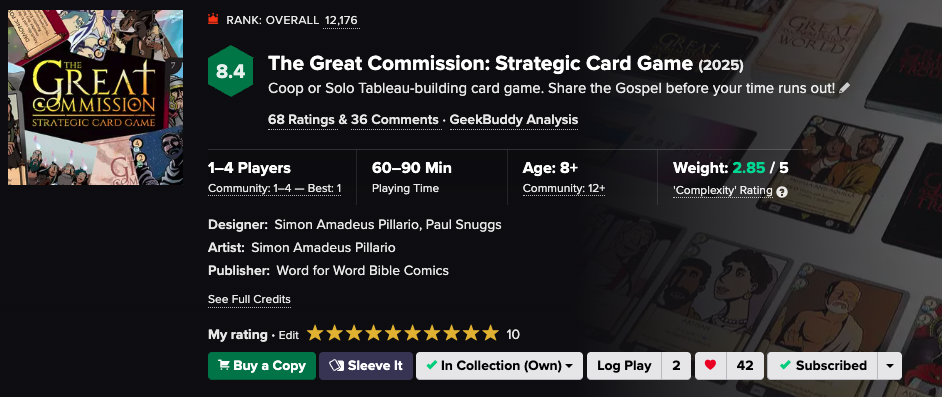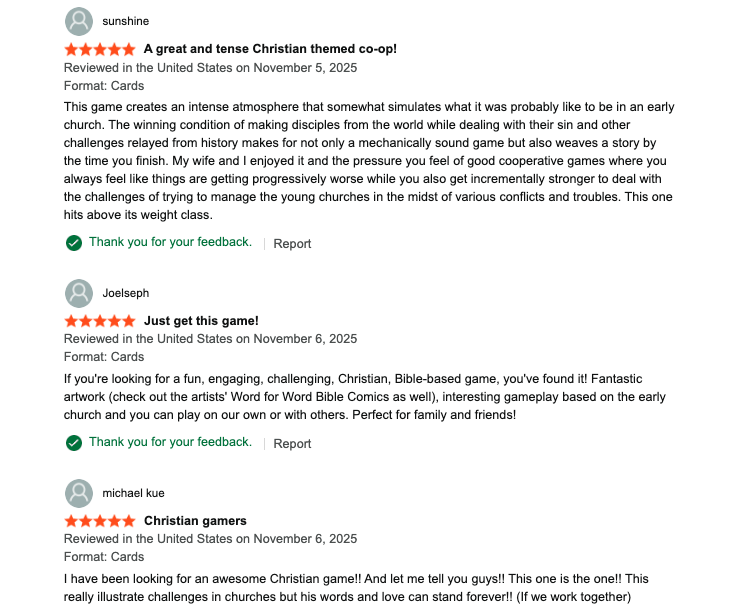FEBUARY NEWSLETTER: PURIM MEGA SALE
In this month’s newsletter:
Purim Mega Sale
Kickstarter fulfilment
All Spanish Editions heading to US prisons
and more…
Purim Mega Sale!
Get 60% off when you buy one The Book of Esther: Word for Word Bible Comic: W.E.B. Translation in time for Purim (March 2nd and 3rd, 2026).
Buy in multiples for an extra discount. You can even combine our “FIFTYQUIDPLUS” discount code, giving you an extra making Esther just £2.25 each for 10. That’s 78% off!
There are just 200 copies left of this edition. The World English Bible is just as good as the NIV, but we use NIV across the board now, so these previous editions have got to go!
NOTE: All these books are in the UK, so if you are outside the UK, you need to select the UK import option for delivery.
Kickstarters rewards on their way!
PHYSICAL REWARDS: We received all the books on Friday morning last week, and fulfilment is now in full swing. 61% is already sent.
I’m ordering all the t-shirts tomorrow, so they will arrive separately within the next 2 weeks.
DIGITAL REWARDS: All the Digital Rewards went out this morning on a Kickstarter Update. There you’ll find a Dropbox link to download your items.
All Spanish editions to US prisons
Inspired by hearing that the Christmas Appeal Spanish books were going to ICE detainment units, where the detainees are 97% Spanish speakers, we partnered with the OPTIM charity once more to send out all our UK stock of the Spanish editions too. So there are another 1,500 Spanish Bible Comics on their way to the USA prisons right now.
Become a Patron
If you’d like to support the Bible Comic Project long term, why not consider becoming a Patron? With Patreon you can donate $1 or more each month. Patrons get exclusive content, like seeing the comic pages first, hangouts and videos that explain the historical and biblical research that goes into the work.
We will have a Hangout this month to talk about what book is up next, and our plans going forward. If you want to be part of the conversation, jump on at any tier!
We’ve had amazing support over the years, and we still have over 100 Patrons! But the numbers have waned in the last year, so I’m hoping to see some new faces come along and join us for 2026!
New members get 30% off their first month. If you’d like to give it a try, use code WORD30. (Offer Expires at the end of Feb).
Note: Use a browser to sign up, as with the Apple App, or Apple will keep 30% of your support.
Prayer Requests
Prison Books Donated: Please pray that the books arrive safely, and that these Bible comics will make a big impact on the lives of the people who receive them. Pray that for many, it will share the gospel with them for the first time. We want to pray for the people in ICE detainment units, and even for those detaining them, that they might discover the peace of the gospel too.
Partnerships: Please continue to pray for us as we have talks with bigger players as we look at potential partnerships.
Game Awards: We've entered the game into the UK Games Expo awards nominations. The judges will be deciding over the next few months which games they like. Please pray that they find the right judge to give it the best possible chance at winning or being a runner-up.


